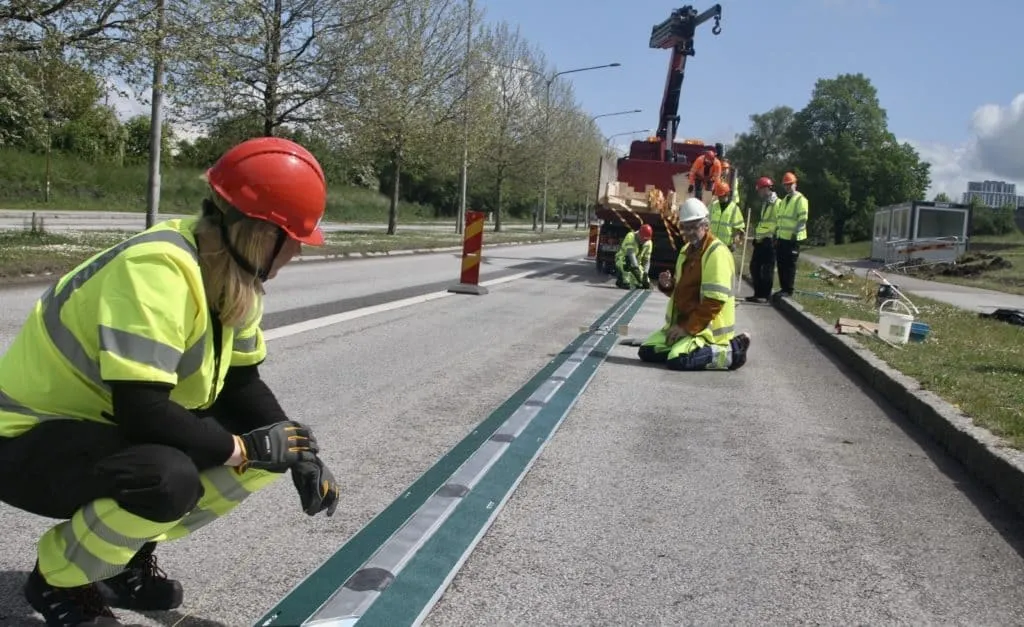In February 2016, Scania will begin testing electric trucks as part of the Swedish Gävle Electric Road project, which will demonstrate and evaluate conductive technology, using electric transmission through overhead lines above vehicles equipped with a pantograph power collector.
The Swedish Transport Administration has now approved support for the project, which is in line with the Government’s goal of an energy-efficient and fossil-free vehicle fleet by 2030. The project consists of about US$9.2 millio
June 9, 2015
Read time: 2 mins
In February 2016, 570 Scania will begin testing electric trucks as part of the Swedish Gävle Electric Road project, which will demonstrate and evaluate conductive technology, using electric transmission through overhead lines above vehicles equipped with a pantograph power collector.
The746 Swedish Transport Administration has now approved support for the project, which is in line with the Government’s goal of an energy-efficient and fossil-free vehicle fleet by 2030. The project consists of about US$9.2 million in public financing combined with about US$6 million in co-financing from the business community and the Gävleborg region.
The project is part of the Electric Roads Project, one of the largest innovation procurement projects currently under way in Europe. In cooperation with the Swedish Transport Administration, the Swedish Energy Agency and Vinnova, industry and academia will demonstrate and evaluate electric roads as a possible method for reducing the use of fossil energy in the transport system.
Scania’s trucks will operate goods transport services on a two-kilometre test route which is being built between the Port of Gävle and Storvik along European highway 16. The trucks are equipped with an electric hybrid powertrain developed by Scania.
Power to the trucks is transferred from overhead lines through a pantograph power collector mounted on the frame behind the cab. This technology has been developed by189 Siemens, which since 2013 has conducted trials of electric trucks with Scania at its research facility outside Berlin.
Scania is also participating in another research initiative as part of the Electric Roads Project, where induction technology will be tested in city bus services. A Scania city bus featuring an electric hybrid powertrain will go into daily operation in Södertälje in June 2016. There will be a charging station at one of the bus stops where the bus will be able to refill with enough energy in just six to seven minutes to complete its journey.
“The potential fuel savings though electrification are considerable and the technology can become a cornerstone for fossil-free road transport services. Electric roads are also a way to develop more eco-friendly transport services by using the existing road network,” says Nils-Gunnar Vågstedt, who is responsible for Scania’s research in this field.
The
The project is part of the Electric Roads Project, one of the largest innovation procurement projects currently under way in Europe. In cooperation with the Swedish Transport Administration, the Swedish Energy Agency and Vinnova, industry and academia will demonstrate and evaluate electric roads as a possible method for reducing the use of fossil energy in the transport system.
Scania’s trucks will operate goods transport services on a two-kilometre test route which is being built between the Port of Gävle and Storvik along European highway 16. The trucks are equipped with an electric hybrid powertrain developed by Scania.
Power to the trucks is transferred from overhead lines through a pantograph power collector mounted on the frame behind the cab. This technology has been developed by
Scania is also participating in another research initiative as part of the Electric Roads Project, where induction technology will be tested in city bus services. A Scania city bus featuring an electric hybrid powertrain will go into daily operation in Södertälje in June 2016. There will be a charging station at one of the bus stops where the bus will be able to refill with enough energy in just six to seven minutes to complete its journey.
“The potential fuel savings though electrification are considerable and the technology can become a cornerstone for fossil-free road transport services. Electric roads are also a way to develop more eco-friendly transport services by using the existing road network,” says Nils-Gunnar Vågstedt, who is responsible for Scania’s research in this field.







